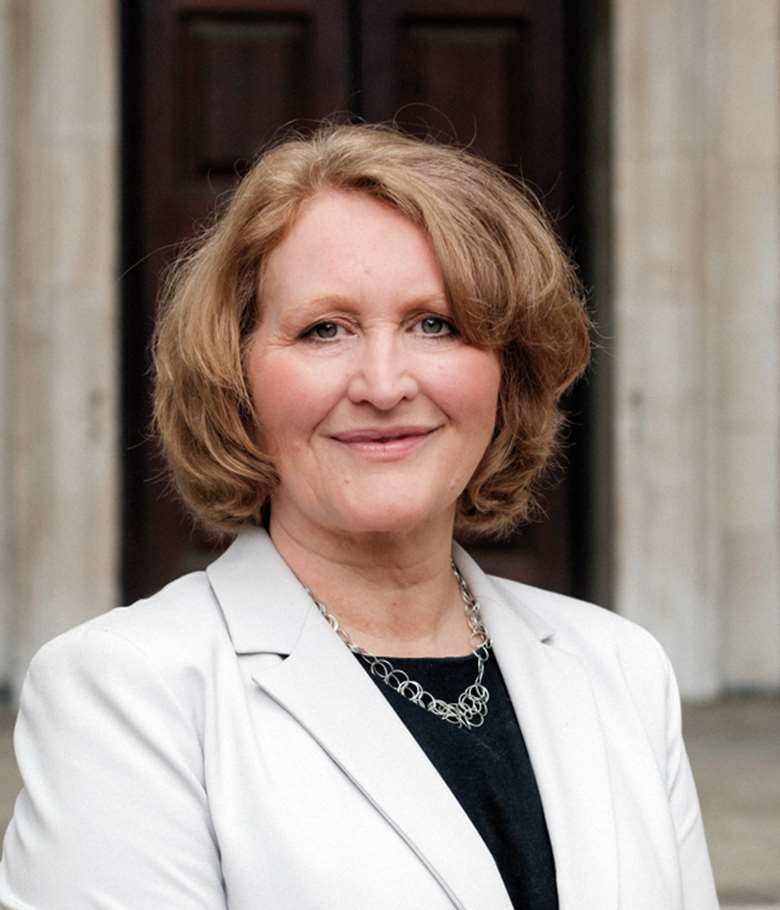Children's commissioner calls for better data on detained children
Nina Jacobs
Thursday, May 16, 2019
Serious concerns about children in secure accommodation are raised in a report published today, which finds that hundreds of children are "lost" in the system in potentially inappropriate settings.

Almost 1,500 children are locked up by the state, at a cost of £300m, but these figures could be much higher due to incomplete data, according to Who Are They? Where Are They? Children Living Behind Closed Doors, published by children's commissioner for England Anne Longfield.
The commissioner's research reveals a messy system which has not tracked around 200 children in the national data, and was only obtained after her office requested it from individual courts, Longfield said.
She added: "There are hundreds of children in England growing up behind closed doors, locked away for their own safety or the safety of others.
"They should never be invisible or forgotten. Our research shows the system that detains them is messy and the state often lacks very basic information about who all these children are, where they are living and why they are there.
"Shockingly, we found over 200 children who would have remained completely invisible in the national data had we not asked about them."
Even for those children that are known about, there is only limited information about how long children stay in secure settings, how long they wait for a place, whether they face delays in the transfer of care to the community and what happens when they leave, the report says.
The document details that 1,465 children were securely detained in 2018, of which 873 were held in youth justice settings, 505 were in mental health wards and 87 in secure children's homes.
The report makes the following recommendations:
- Councils should be required to provide data to the children's commissioner, Ofsted and the CQC on the number of detained children in their area, the legal basis for that detention and where those children are living.
- The NHS should ensure that data is published on age, ethnicity and gender for all children detained in its annual report and to increase coverage of data returns to 100 per cent of settings.
- Data routinely collected on admission to custody, mental health wards or secure children's homes about the mental health, learning or social care needs of children in settings should be published annually and NHS England should publish its figures about the length of stay in hospital for children sectioned under the Mental Health Act.
- The DfE should also publish the ethnicity of children detained in secure children's homes on welfare grounds.
- Health, justice and education departments should also set up a joint working group to examine how data could be better collected and to examine issues such as the use of restraint and segregation in secure settings.
"None of these departments publish administrative data on a regular basis about the needs of these children, for example, their mental health diagnoses, special educational needs or family problems," the report states.
The report cites examples of the impact, such as children staying longer in secure children's homes because no other suitable placements are available.
"The needs of children in different settings are increasingly understood to be quite similar, with no clear-cut distinction between children in need of protection and children who have committed crimes," the report said.
Secure children's homes were found to be the most expensive form of provision costing around £210,000 per child per year.
Meanwhile, secure training centres cost £160,000 annually and young offender institutions £76,000.
Medium secure mental health settings were found to be the most expensive type of provision, at £1,611 a day or £588,015 a year.
Enver Solomon, Just for Kids Law's chief executive, said children were being failed in prisons with high reoffending rates and cases of degrading treatment.
"Now thanks to this report we also know the huge expense to the taxpayer of locking up children, as well as the troubling fact that data on so many children is being lost.
"Prisons are dangerous and damaging places for children. It's time to think again and create alternatives that improve public safety for everybody," he said.
Charity Coram welcomed the move for local authorities to provide data on the number of detained children in their areas but said the cases of the "invisible" children was an "alarming safeguarding failure".
"It is unacceptable that over 200 children have been essentially 'lost in the system' and placed in settings about which we have no information.
"We have no idea how long these children have spent in these institutions and no idea as to whether they are receiving interventions that best respond to their needs," said Renuka Jeyarajah-Dent, Coram's deputy chief executive officer.
Helen Donohoe, assistant director of Article 39, said the findings confirmed its view that too many children were detained for excessive periods of time.
"We know that human rights abuses are common and data collection is inadequate, but it is incomprehensible that so many vulnerable children can simply be lost.
"We welcome the commissioner's calls for improved gathering and sharing of data. However, poor monitoring is just one signifier of systemic failure.
"We support the commissioner's proposal for a cross-government working group but the focus must be on transforming children's care and protection, including through a strengthened role for independent advocates," she said.




